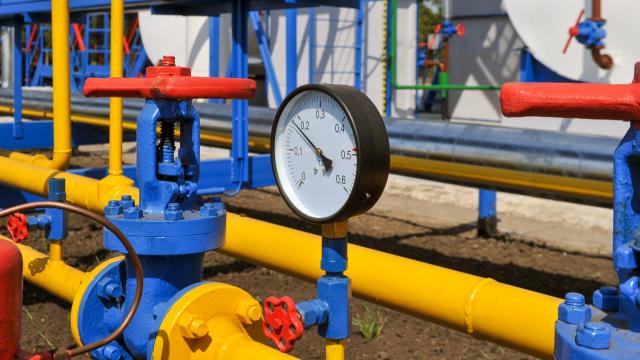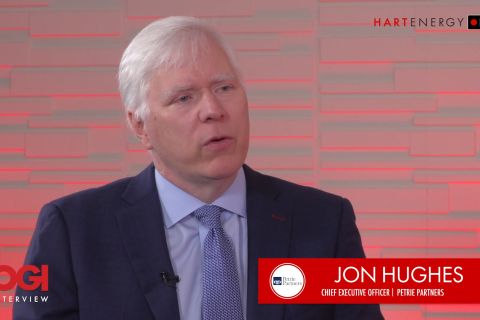
The American Public Gas Association (APGA) usually doesn’t receive the same amount of attention as fellow energy communities, but an organization that is the voice of hundreds of utilities, and subsequently millions of customers, is not to be overlooked.
To be more specific, Washington, D.C.-based APGA, established in 1961, has more than 700 members in 37 states and represents the interests of all the nation’s public gas systems. As locally owned and operated utilities, they are in the unique position of being directly answerable to their local citizens. APGA members include municipal gas distribution systems, public utility districts, county districts, and other public agencies that own and operate natural gas distribution facilities in their communities. They range in size from hundreds of thousands of customers to a handful.
In the past year, APGA has been faced with a transition due to the retirements of several top executives, including President and CEO Bert Kalisch. He has been replaced by Dave Schryver, who previously served as APGA executive vice president. He joined APGA as Vice President for Congressional Affairs in 2004. His lobbying efforts includes previous a stint as a senior government relations representative with the American Public Power Association.
Schryver also served as manager of the Government Affairs Department for Colorado Springs Utilities (CSU), a four-service municipally owned utility. Prior to joining CSU, he worked on Capitol Hill for seven years for Sen. John Breaux (D-La.). He holds a BA degree from Miami University in Oxford, Ohio.

In an interview with Hart Energy, Schryver discussed the overall business health of APGA members, their strategies to deal with the challenges facing the gas utility business and the road ahead.
“Given this service to Americans, the health of APGA members is strong. Natural gas continues to be desired, and we are meeting the need of delivering it safely,” Schryver said. “However, there is a movement across the United States to eliminate the direct use of natural gas. This is being accomplished by policies approved by state and local officials. In some of these, even new natural gas hookups to buildings are banned, forcing the customer to fuel switch.
“Passing policies that effectively remove the opportunity for the direct use of natural gas in homes, businesses and industry is a serious concern to APGA members and could impact the future health of their systems.”
Standing Up For Natural Gas
The natural gas industry is in the position of defending the use of its product against the anti-fossil fuel lobby, which just a few years ago embraced natural gas as an appropriate bridge to a cleaner environment. It’s a debate front and center for the entire industry.
“As I said earlier, eliminating the direct use of natural gas in homes, businesses, and industry is a serious concern to APGA and its members. Ensuring elected officials know the value of natural gas is a key priority,” Schryver said.
Schryver agrees opportunities exist for energy-efficiency improvements to ensure greenhouse gas (GHG) emission reductions but insists these need to be balanced with consumer affordability, as well as choice.
“Americans need to have the opportunity to use the appliances they desire, including gas ranges,” he said. As a result, APGA and its members are working with the pertinent agency within the Department of Energy (DOE)—the Office of Energy Efficiency and Renewable Energy (EERE) )—on appliance rulemaking.
Schryver suggested that in addition to government officials, the public needs to be aware of the positive effects natural gas use can have on the environment and their wallets. Explaining those benefits to Americans are central to the association’s mission. That’s why when he and his staff meet with member companies, they report that this threat to eliminate the direct use of natural gas is a critical concern.
“As cities and states consider policies aimed at protecting the environment, APGA wants to be sure natural gas is a part of the fuel mix of these locales now and in the future. There is no reason why it shouldn’t be,” he insisted. He points to Environmental Protection Agency (EPA) statistics showing that natural gas distribution system emissions have dropped 73% since 1990. This is despite natural gas production increasing by 53% in that same period.
“Mitigating environmental impact is a significant challenge being faced currently, and huge credit to the substantial decrease in GHG emissions goes to APGA members working within their companies and with their customers on ways to reduce energy consumption. Investing in research on innovative technologies in the residential and commercial sector has also led to reduced emissions,” Schryver explained.
RELATED:
- Trump Seeks To Bring 100,000 Energy Jobs To Appalachia
- The Ins And Outs Of Gas
- Report: Appalachian Shale Gas Has Saved US $1.1 Trillion
- What's Affecting Oil Prices This Week?
Other Significant Challenges
Schryver noted, due to their unique size and structure, publicly owned gas system leaders are experts on all aspects of managing a local natural gas distribution utility—from the day-to-day operations to state and federal policies that can impact their product. They serve in a variety of roles, and discussions often include any of the following challenges or something new: concern regarding valve lead times, pipeline safety management systems (Pipeline SMS) adoption, pipeline permitting, workforce development or energy efficiency.
Despite the work done to date, APGA members are still working hard to further technologies. Here’s why: “APGA believes the direct use of natural gas is the most efficient use of energy, especially considering all of the domestic production. Converting to electricity removes all these efficiencies,” Schryver said.
Today APGA’s Research Foundation, in coordination with the Gas Technology Institute, is developing a low-cost, efficient, natural gas-fired heat pump for space heating. Another valuable effort is focused on the advancement of combined heat and power (CHP) systems. These generate onsite electricity from natural gas and recycle waste heat for building operations, resulting in a highly efficient system. CHP is often used in hospitals, universities and other larger applications.
Schryver says there are opportunities to improve the technologies for these, as well as deploy micro-CHP for residences and small businesses. In the commercial food service industry, the APGA Research Foundation, through its partnership with GTI, has focused on high-efficiency natural gas equipment and appliances. This work involves a variety of commercial kitchen equipment, such as fryers and ranges. Many chefs and cooks prefer natural gas, since it is quick, controllable, and affordable.
Safety Is Job One
Safety in its many forms remains the overriding priority for APGA members, as it is for all gas utilities. It’s a responsibility that causes many sleepless nights for natural gas executives and managers. So, it’s no coincidence that at every meeting, safety leads tops agenda.
“The safe transportation of natural gas through pipelines and the safety of those living and working near their systems will always be the top priority. APGA members are committed to pipeline safety and strive to identify ways to continuously improve,” Schryver said.
Members collaborate on best practices for the design, construction, operations and maintenance of their pipelines. Another important role for APGA, one in which Schryver specialized in, advocates for meaningful and effective improvements to federal and state pipeline safety regulatory requirements.
In addition to innovation in appliances, Schryver said the APGA Research Foundation is investing in technologies to help improve pipeline safety. New technologies to help in leak detection, as well as pipeline repair, are being developed with support from GTI.
From a policy perspective, APGA keeps engaged with Congress to ensure proper pipeline safety legislation, as was recently seen with reauthorization of the Office of Pipeline Safety. APGA also works with the Pipeline and Hazardous Materials Safety Administration (PHMSA), as it issues rulemakings addressing mandates from previous reauthorization bills. The National Transportation Safety Board (NTSB) has several ongoing investigations that involve distribution operators.
“While these are not APGA members, any recommendations from the NTSB could impact their operations, so APGA staff is appropriately working with the pipeline staff at the investigative agency to ensure fit-for-purpose recommendations,” Schryver said.
New Programs Introduced
In May, the APGA board of directors rolled out a voluntary mutual assistance program for members. Schryver describes their expectations.
“With weather- and outage-related incidents throughout the country, it’s become ever apparent that APGA members are ready and eager to send aid. The new Mutual Aid Program to allow utilities to provide and receive support from program participants around the country should a disaster or emergency situation arise. This assistance from other natural gas systems will be critical during a scenario requiring an urgent response.
APGA is also involved in the industry-wide Pipeline SMS, which Schryver called “a key priority for all pipeline operators.” The PSMS is in response to API RP 1173, which resulted from two serious pipeline incidents in 2010. To address the NTSB’s charge, the entire oil and gas pipeline industry has come together in an unprecedented effort to develop a safety management framework for pipelines, the objective being to assist operators in improving their safety practices.
Following the publication of the RP, APGA’s Operations and Safety Committee recently developed a “Commitment to Pipeline Safety” program, formalizing APGA members’ dedication to continuous improvement in all areas of pipeline safety, Schryver said. As well, the APGA Pipeline SMS Task Group created the “Pipeline SMS Planning/Gap Analysis Tool for Small Operators.” This is a self-assessment tool intended to introduce users to the elements of API RP 1173, while helping identify potential areas for improvement.
To further emphasize the importance, APGA has embedded Pipeline SMS adoption into its System Overall Achievement Recognition (SOAR) Award. Each year, through the SOAR program, APGA honors member systems that demonstrate commitment to excellence in four areas: system integrity, system improvement, employee safety, and workforce development. Over 50 APGA member systems have participated in SOAR since its creation in 2014.
In addition to Pipeline SMS, APGA members are studying ways to improve cybersecurity efforts.
“Pipeline systems, including distribution, are considered critical infrastructure, so APGA members are working hard to protect their assets from potential threats,” Schryver said.
“There is engagement with other energy trade associations on voluntary means to harden both informational technology (IT) and operational technology (OT) systems. Additionally, the appropriate agencies within the federal government are coordinating with APGA members to determine practical and cybersecurity measures for their operations.”
A Final Thought
Schryver and his small staff are determined to show that their industry is not lacking in its commitment to provide an affordable fuel or its dedication to the environment.
“I think it’s evident APGA is committed to being good stewards of the environment, but not at the detriment of consumer affordability and choice. APGA and its members firmly believe natural gas is the best way to reduce emissions and provide an affordable and reliable energy supply to Americans. All sectors must do their part to reduce greenhouse gas emissions, and natural gas utilities and their customers are leading.”
Recommended Reading
The OGInterview: Petrie Partners a Big Deal Among Investment Banks
2024-02-01 - In this OGInterview, Hart Energy's Chris Mathews sat down with Petrie Partners—perhaps not the biggest or flashiest investment bank around, but after over two decades, the firm has been around the block more than most.
Kissler: OPEC+ Likely to Buoy Crude Prices—At Least Somewhat
2024-03-18 - By keeping its voluntary production cuts, OPEC+ is sending a clear signal that oil prices need to be sustainable for both producers and consumers.
Buffett: ‘No Interest’ in Occidental Takeover, Praises 'Hallelujah!' Shale
2024-02-27 - Berkshire Hathaway’s Warren Buffett added that the U.S. electric power situation is “ominous.”
The One Where EOG’s Stock Tanked
2024-02-23 - A rare earnings miss pushed the wildcatter’s stock down as much as 6%, while larger and smaller peers’ share prices were mostly unchanged. One analyst asked if EOG is like Narcissus.
Chesapeake Slashing Drilling Activity, Output Amid Low NatGas Prices
2024-02-20 - With natural gas markets still oversupplied and commodity prices low, gas producer Chesapeake Energy plans to start cutting rigs and frac crews in March.





